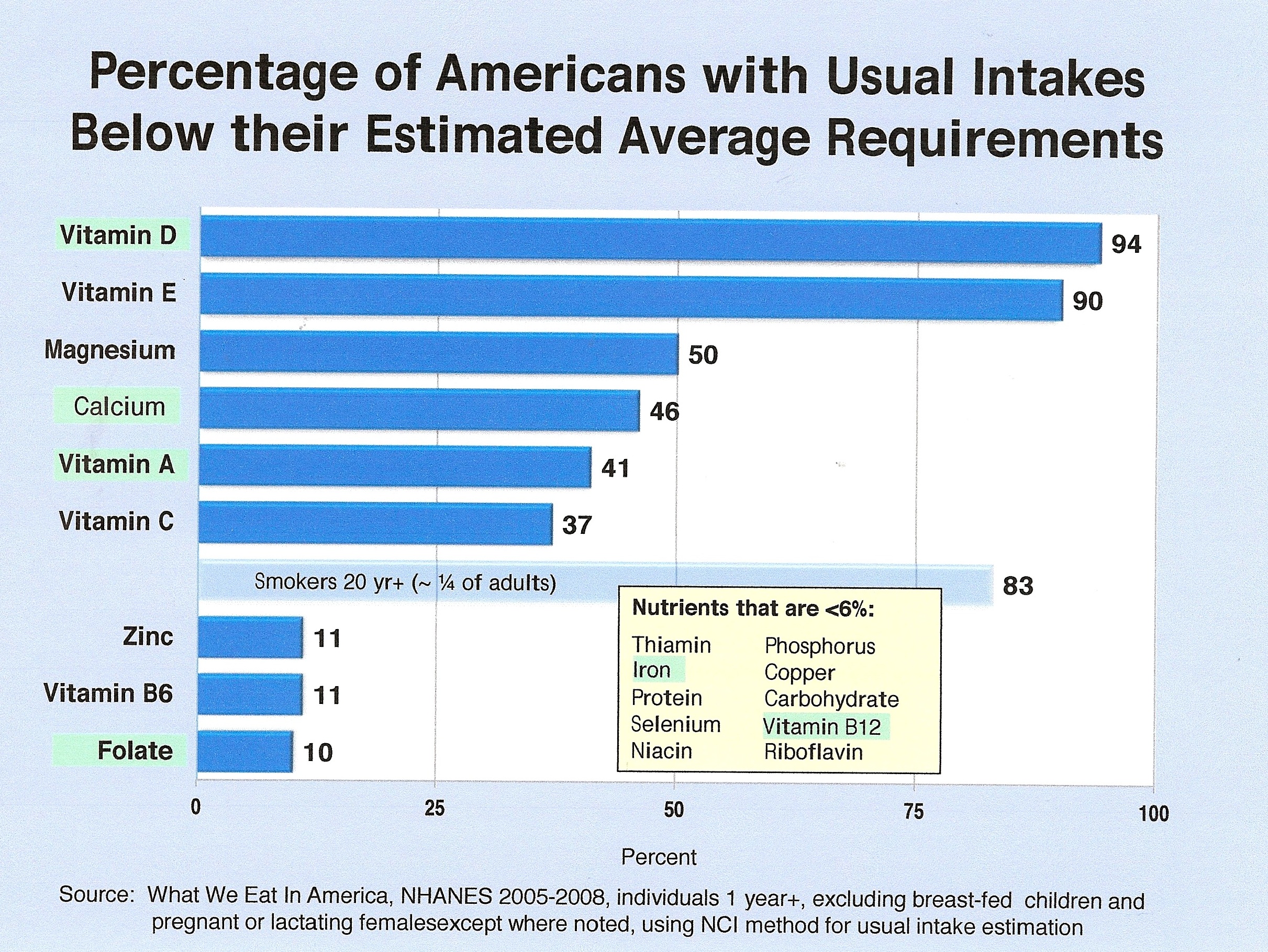Did you know the average American eats less than 10 grams of fiber daily and the recommended intake is 25-35 grams? What's the solution? Click here to see!
Nutrition Links & Nutrition in the News
Are Supplements Necessary or Beneficial?
Most experts agree that multivitamins and minerals are a good "insurance policy" since most Americans don't get all that they need from their diet. It's not that we don't know what to eat - it's just that many Americans eat convenience foods which are high in calories and low in nutrients. Also, the nutritional quality of our foods simply is not what it once was. Fruits and vegetables are picked early so they can be shipped from distant countries to the US for processing and distribution. Some people have health challenges (e.g. autoimmune diseases, celiac disease, etc) which put them at risk for nutritional deficiencies and also people take Rx medications that can deplete nutrients which means it is more difficult for them to achieve optimal health.
Periodic surveys are conducted by NHANES (What We Eat in America) and the data show there are numerous "shortfall" nutrients as seen below (click here for more details and to see the original data).
 The data clearly show that most Americans have inadequate dietary intakes of Vitamins D and E. The prevalence of inadequate intakes was also high for magnesium, calcium, Vitamins A and C. For some nutrients, intakes were inadequate for only certain groups (e.g. Vit B6 for adult females, folate for adult and pregnant females, phosporus for teen girls, zinc for teen girls and adults 70+ and iron for pregnant females.
The data clearly show that most Americans have inadequate dietary intakes of Vitamins D and E. The prevalence of inadequate intakes was also high for magnesium, calcium, Vitamins A and C. For some nutrients, intakes were inadequate for only certain groups (e.g. Vit B6 for adult females, folate for adult and pregnant females, phosporus for teen girls, zinc for teen girls and adults 70+ and iron for pregnant females.
It's important to consider what nutritional EXPERTS have to say about supplementation. Reader's Digest is not an authoritative source for nutritional research data and news shows along with the popular press are always most interested in sensational headlines (not reporting the latest research accurately). It's also important to note that nutritional supplements are NOT intended to diagnose, treat, cure or prevent disease so you can't expect a multivitamin to cure cancer.
Who is recommending the use of nutritional supplements?
My experience is that nutritional experts agree that you should eat a healthy diet and do your best to get nutrients from foods. Having said that, any number of experts see value in nutritional supplementation. Some Specific examples are shown below.
HARVARD SCHOOL OF PUBLIC HEALTH - BENEFITS OF A MULTIVITAMIN (click HERE)
AMERCIAN HEART ASSOCIATION'S RECOMMENDATIONS RE: OMEGA-3 FATTY ACIDS:
|
Population |
Recommendation |
|
Patients without documented coronary heart disease (CHD) |
Eat a variety of (preferably fatty) fish at least twice a week. Include oils and foods rich in alpha-linolenic acid (flaxseed, canola and soybean oils; flaxseed and walnuts). |
|
Patients with documented CHD |
Consume about 1 g of EPA+DHA per day, preferably from fatty fish. EPA+DHA in capsule form could be considered in consultation with the physician. |
|
Patients who need to lower triglycerides |
2 to 4 grams of EPA+DHA per day provided as capsules under a physician’s care. |
Copyright © 2015 Savvy Selections
Savvy Selections | Dr.Nancy | Weight Loss & Nutrition | Resources | Team TLC







